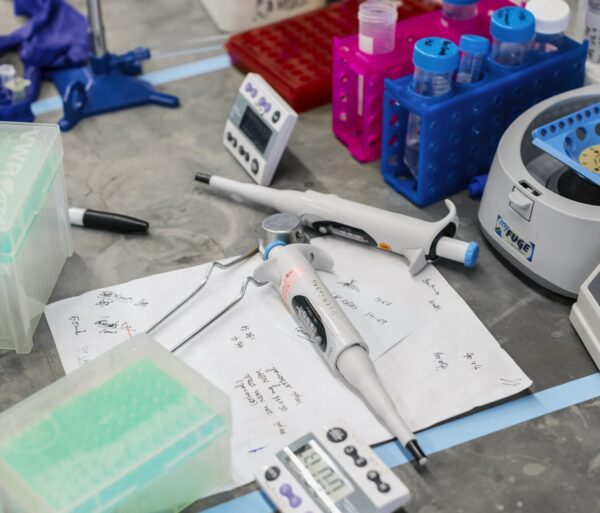
Dr. Ya-Ping Tang, an assistant professor of psychiatry at The University of Chicago, strives to create a schizophrenia genetic animal model that will be an extremely valuable tool in developing novel preventive and therapeutic strategies for patients suffering from schizophrenia.
It has long been known that schizophrenia runs in families. People who have a close relative with schizophrenia have a higher risk of developing the disorder. This increased risk led scientists to uncover genetic factors. More specifically, genetic association studies have identified susceptibility or candidate genes for schizophrenia by looking for differences between people who have the disease and those who don’t.
Dr. Tang focused on a gene complex that was recently reported to be associated with schizophrenia, G72/G30. G72 and G30 are expressed only in primates, with no counterpart in mice. They have no established function. In order to study their functions, Dr. Tang planned to generate two genetic mouse models. One model was to express normal G72/G30 gene complex and the other to express variant G72/G30 derived from schizophrenia patients. The animal models were to be extensively characterized at molecular, histological, and cellular levels. Dr. Tang hypothesized that the variant G72/G30 gene complex derived from schizophrenic patients may exhibit schizophrenia-like traits in the mice. He planned to determine if the animals exhibit the manifestation of hallmark symptoms of schizophrenia. Although some symptoms such as delusions and hallucinations cannot be observed in animals, many other behavioral deficits can be evaluated.
One of the most apparent symptoms for schizophrenia is a deficit in social behaviors. Behaviors such as gesturing and vocalizing are enhanced in schizophrenia patients. Dr. Tang expected to see similar enhancements of social behaviors in the mice with schizophrenia-based G72/G30 gene complex.
Another behavior is a startle response. Unexpected stimuli elicit startle responses from animals and humans. However, this startle response can be dramatically attenuated if the unexpected stimuli are preceded by a weak stimulus. This phenomenon is called pre-pulse inhibition (PPI). Studies have shown that PPI in schizophrenia patients is greatly impaired. Therefore, when schizophrenia-based G72/G30 gene complex mice are studied, the outcome should also show impairment.
Dr. Tang hoped that this study may validate a schizophrenic mouse model that will be an extremely valuable tool in developing novel preventive and therapeutic strategies for patients suffering from schizophrenia.



